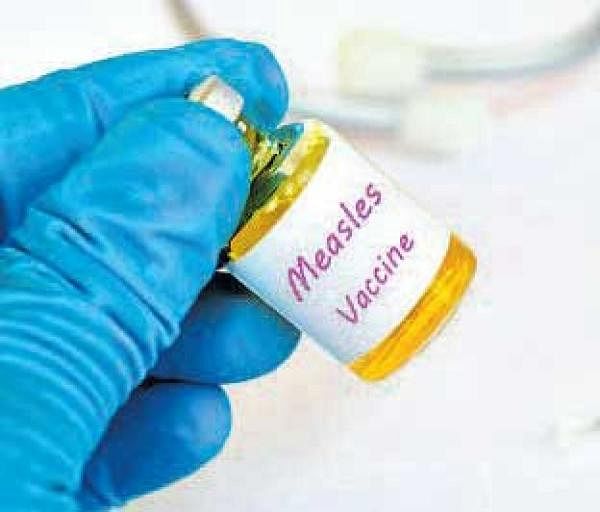
The death toll from a measles epidemic in Samoa edged up to 33 Wednesday, as experts expressed hope the outbreak in the Pacific island nation was close to "burning itself out".
Official government figures showed there had been one additional fatality since Tuesday, although the number of new measles cases climbed by 249 to 2,686 over the same period.
University of Auckland vaccinologist Helen Petousis-Harris said Samoa's 200,000 population offered a finite pool for the virus to spread and a compulsory immunisation programme should help limit it.
"Without intervention the epidemic will run a natural course and ultimately burn itself out," she told AFP.
"Given the mass vaccination campaign now underway, it is possible that the epidemic will peak this week or next then begin to decline."
Petousis-Harris said restrictions on public gatherings, which the government introduced in tandem with its vaccination programme, would also help.
"Eliminating the people susceptible to the virus by vaccinating them and keeping people who may have been exposed to the virus isolated should truncate the epidemic," she said.
Children are the most vulnerable to measles, which typically causes a rash and fever but can also lead to brain damage and death.
In Samoa, 29 of the deaths have been children aged four or under.
The outbreak has been exacerbated by low immunisation rates in the island nation, which officials say stems partly from a case last year when two babies died after receiving measles vaccination shots.
It resulted in the temporary suspension of the country's immunisation programme and dented parents' trust in the vaccine, even though it later turned out the deaths were caused when other medicines were incorrectly administered.
Petousis-Harris said the epidemic had been exacerbated by a delay of more than four weeks between the first measles case and the declaration of a state of emergency.
"The response to the epidemic has been very delayed," she said.
"The epidemic was well established before it was announced and little was done until the virus was well established in the population."
The UN children's agency UNICEF has sent than 110,000 doses of measles vaccine and medical teams from Australia and New Zealand are helping administer them.
Tonga and Fiji have also experienced outbreaks but they have been much more limited, with no fatalities so far, because immunisation rates are much higher.